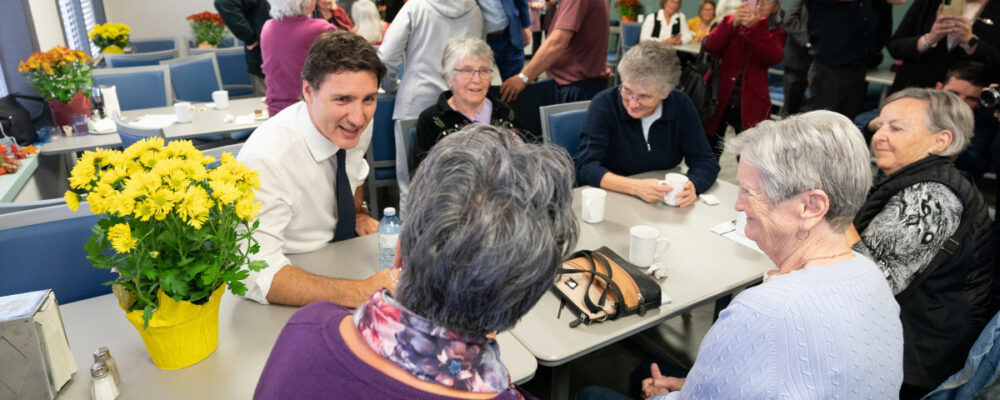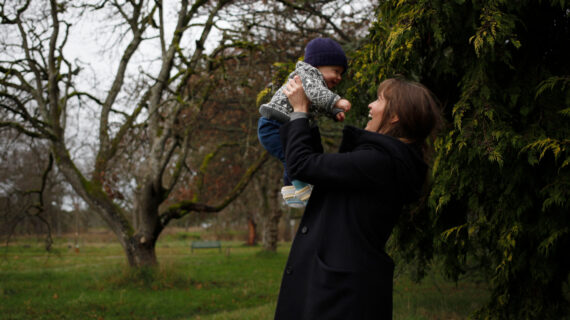As 2022 came to a close, a late-year poll portended the potential for an intergenerational fault line to emerge in Canadian politics. It’s something that our political class should actively seek to avert over the coming year.
The polling, produced by the polling firm Mainstreet Research, has thus far been mostly analysed according to narrow partisan interests. Conservatives can point to their party’s surprising 15-percentage point lead among voters aged 18 to 34. The Liberals can find solace in their nearly 9-point advantage with those aged 65 years and older.
Yet there’s been little discussion about the broader consequences of our politics polarizing along generational lines. The risk of a growing generational fissure however shouldn’t be underestimated. It threatens the rise of a zero-sum political dynamic that essentially pits Millennials and Zoomers against their Baby Boom parents and grandparents.
A common explanation for this age-based trend is the inexorable arithmetic of demographics. The Baby Boomers, who comprise those born between 1946 and 1965, have sustained significant cultural, economic, and political power for decades based in large part on their demographic numbers. Yet their relative share of the Canadian population is actually declining. It fell for the first time to less than one quarter in 2021.
Millennials (those born between 1981 and 1996), by contrast, belong to the fast-growing generation. Their numbers rose by almost 9 percent in 2021 due to immigration inflows. They are now 21.5 percent of the population and are projected to be the largest generational cohort by the end of this decade.
But demographics are a necessary yet insufficient part of this story. A combination of age-based voting patterns and the inherent design of the Canadian welfare state tilt strongly in favour of older Canadians. Herein lies the real threat of a so-called “age-based politics.”
Survey data from Statistics Canada for the 2021 federal election tells us that older Canadians (aged 65 and older) have a much higher propensity to vote. The self-reported voter turnout rate was more than 80 percent compared to just 68.5 percent for those between the ages of 18 and 34.
This has doubtless contributed to a welfare-state model that increasingly serves to redistribute income from working-age Canadians to retirees. Consider, for instance, a 2015 study that estimated Canadian governments spent between $33,321 and $40,152 per person aged 65 and over and just $10,406 and $11,614 per person under age 45. These figures are consistent with OECD analysis that has characterized Canada as among the “least intergenerationally just” countries in the advanced world.
The Trudeau government’s reversal of its predecessor’s gradual raising of the eligibility age for Old Age Security is a good (or bad) example of the intergenerational inequities inherent in Canadian public spending. The fiscal consequence of this decision is more than $10 billion in scarce public resources to the wealthiest generation in Canadian history by 2030 alone. A one-time boost of up to $500 during the pandemic was just insult to injury. At a time when we should be investing in the future—including energy, human capital, infrastructure, and science and technology—a growing share of public dollars is being dedicated to the current consumption of older (and often wealthy) Canadians.
But the generational bias of public spending doesn’t even tell the full story. These generational trade-offs manifest themselves in other policy choices that similarly pose risks to our political economy.
Housing is the highest-profile example. Canada’s housing supply gap (which Scotiabank estimates would require 1.8 million new homes to merely reach the G-7 average in terms of supply per population) is in large part a function of intergenerational politics. Provincial and local politicians have essentially come to preference the wealth accumulation of older homeowners over the homeowning ambitions of younger generations. The result is a set of land-use policies that have blocked new housing supply, driven up prices, and given Canada the dubious distinction as home to the largest gap between incomes and housing prices in the G-7.
The pandemic response itself was basically a series of intergenerational trade-offs in favour of older Canadians. Policymakers didn’t necessarily communicate in these terms but they essentially chose to restrain normal economic activity as well as in-person education in order to protect at-risk older populations. Even if these trade-offs may have been justified—particularly before the availability of vaccines—we still cannot deny them.

There’s now plenty of evidence that the consequences in terms of “learning loss” for schoolchildren are significant. One authoritative American study for instance estimates that nine-year-olds lost the equivalent of two decades of progress in math and reading. These effects are bound to be most pronounced among poor and vulnerable populations.
It’s not a tremendous surprise therefore that we’re seeing growing polarization in our politics according to age. What’s notable though is how these generational developments are finding partisan expression. If younger voters helped to deliver Justin Trudeau’s majority win back in 2015, the same cohort is now drifting to Pierre Poilievre and the Conservative Party.
A big part of the explanation is a growing sense of disaffection about the economy and the younger generation’s future prospects. A set of separate yet linked issues including job precarity, student debt, high housing prices, and delayed family formation have contributed to feelings of generational angst. There’s also some evidence that Generation Z is more inclined to push back against the excesses of the left-wing identity politics that they’ve encountered on campuses. Poilievre and the Conservatives have thus far managed to position themselves as a political home for those struggling with a “failure to launch.”
Yet at the same time, the Liberals have overtaken the Conservatives as the first choice among older voters. The explanation here is a bit more complicated. It may be that early Boomers are less conservative than past seniors. It may also be that the Trudeau government is being rewarded for its extraordinary infusion of public dollars into old-age programs. Or perhaps it’s a gasp of Boomer nostalgia for the prime minister’s father and their own youthful idealism.
This nexus between age and partisanship stands in the way of either party achieving a significant electoral victory. A cross-generational coalition is ultimately necessary to win a majority government in modern Canadian politics. The coming year should therefore be marked by efforts by Liberals and Conservatives to make inroads with both sides of the generational divide.
These electoral pressures ought to work in favour of the broader goal of cohesion and stability. Neither party has an interest in stoking intergenerational conflict. Yet the challenge will be finding positive-sum outcomes in public spending and housing policy which are themselves prone to zero-sum dynamics. It will require political leadership to navigate these issues and avoid a fault line emerging. Readers can decide whether that’s a cause for optimism or pessimism for the coming year.
Postscript: One cause for optimism is that my wife, Katelin, and I welcomed a future voter over the holidays. William Ernest Speer was born on Thursday, December 29 at Mount Sinai Hospital in New York City. William and his mom are home and doing well. His dad and older brother, Ewart James, love them both.




